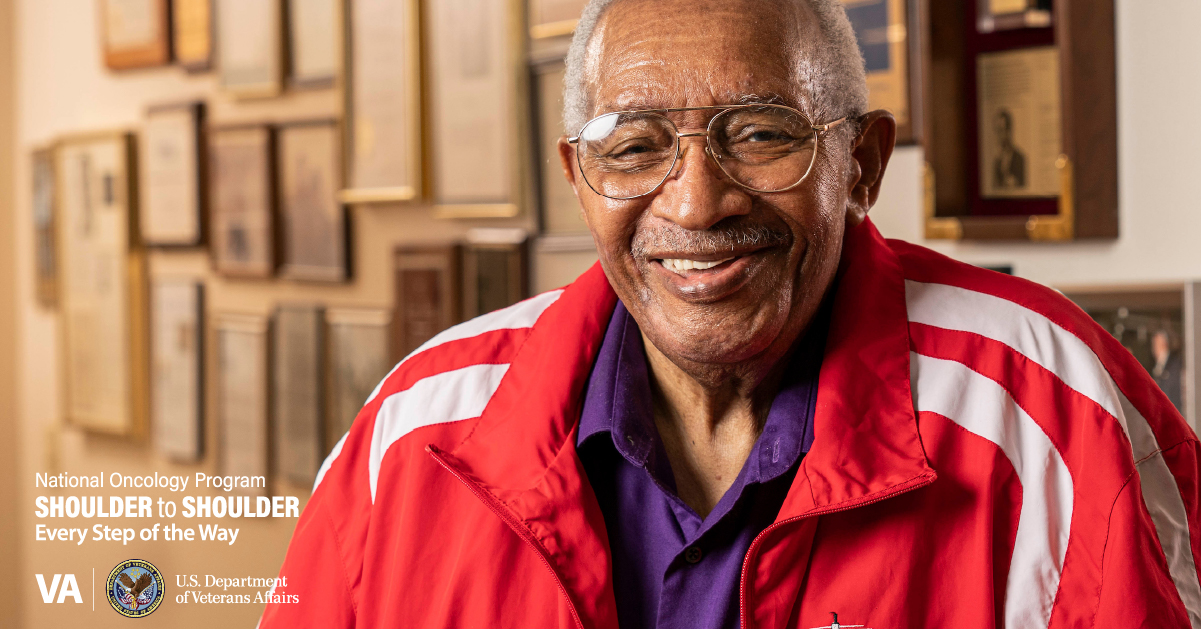U.S. Navy Veteran Renee Brawner of Pittsburgh was always diligent about her annual breast cancer screening mammogram. This year, her mammogram discovered a lump that was quickly determined by biopsy to be cancer. “It was a blessing, when they found it,” said Brawner.
To make sure that the cancer hadn’t spread, Brawner also had a bone scan because the treatment of the tumor required surgery. “They set up for me to have surgery, the doctors here they worked quickly and got it taken care of. Now, I am cancer free,” she said.
Recommended screenings
“It’s important to ensure you are up to date on cancer screenings, such as mammograms, colonoscopies, pap smears and for certain Veterans, low-dose CT scans to evaluate for lung cancer,” said Director of the Breast and Gynecologic Oncology System of Excellence, Dr. Haley Moss.
- Lung cancer affects more than 7,000 Veterans each year and causes more deaths than any other cancer among Veterans. Screening with low-dose CT scans helps catch lung cancer earlier when treatment is most effective.
- Colorectal cancer is also a leading cause of cancer cases and cancer deaths in the US, but one-third of adults eligible have never been screened. Screening should start at age 45 and includes easy options such as a test called FIT that you can do in the comfort of your own home.
- Cervical cancer used to be a leading cause of death in the United States but has decreased by 50 percent over the past 40 years due to increased screenings. Veterans should be screened regularly based on the type of preferred test. In some cases, although the rate of cervical cancer is going down, the number of new cases and deaths is going up. This is because the size of the U.S. population is growing and aging each year.
- Breast cancer screening is recommended to be done yearly—starting at age 45—by having a mammogram. The opportunity to screen can begin at age 40. Talk with your provider about the balance of benefits and harms along with your values and preferences.
“Cancer screening can be preventive,” said Dr. Jason Dominitz, executive director of VA’s National Gastroenterology and Hepatology Program. “You can take out polyps before they start invading during a colonoscopy. Even if it is invasive, you can catch it an earlier stage where it can be curative.”
To learn more about screening, visit the National Center for Health Promotion and Disease Prevention.
Screened Veterans are healthy Veterans
Scheduling regular check-ups to make sure cancer screenings take place is one way to catch or prevent cancer. Your VA provider can answer questions on what screening tests make sense for you based on your personal history and your risk factors.
Screening tests are used to look for cancer before there are noticeable signs. Regular screenings for cancers can increase your chances of finding cancer early when treatment is most likely to be successful.
VA is focused on helping Veterans lead healthier lives. VA providers work hard to ensure the proper cancer screening takes place, and if necessary, work to find the best treatments for your cancer care needs.
All VA providers stand shoulder to shoulder with Veterans and support them on every step of their cancer journey.
For more information on VA and cancer screening, visit cancer.va.gov.
For more about the recommended Screening Tests and Immunizations, visit:
Topics in this story
More Stories
Study underscores important role COVID vaccination can have in protecting Veterans from infection and reducing long-term health consequences
Columbia VA’s robotic surgery teams completed their 800th robotic surgery and are on schedule to hit 1,000 by the end of the year.
In a decentralized clinical trial, Veterans can participate from their own homes or local VA instead of having to travel to a research site.






